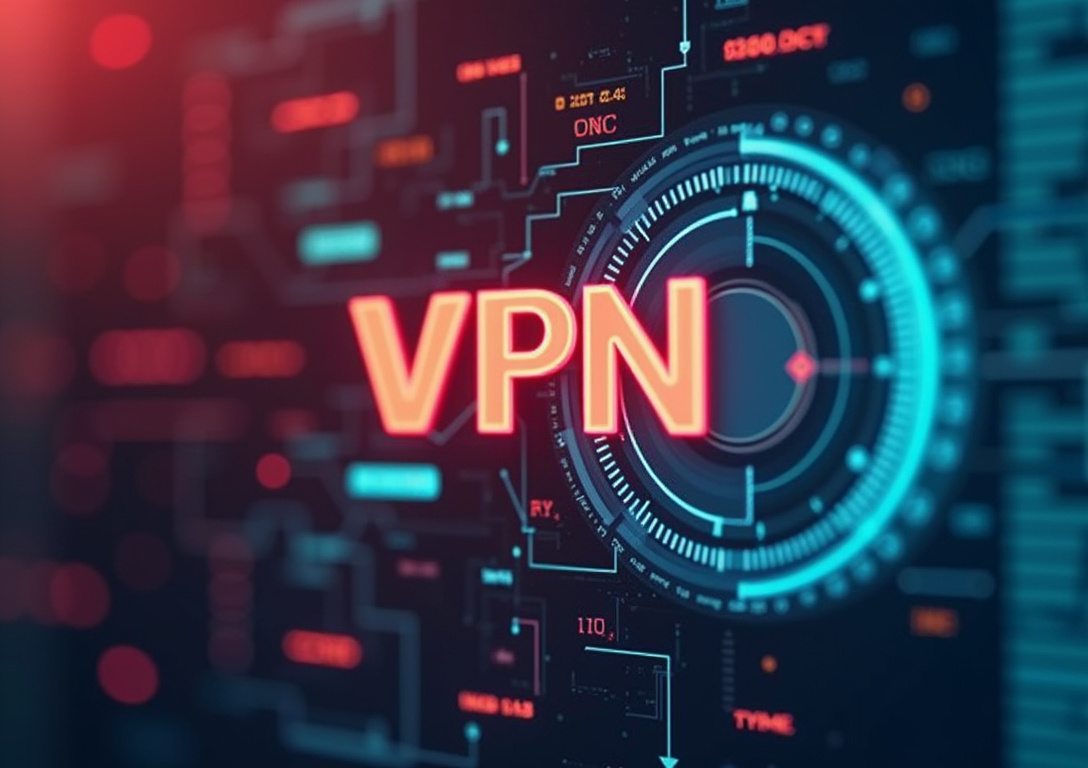Unpacking VPN Server Locations: Why They Matter

Table of Contents
The Global Gateway: Understanding VPN Server Networks
In the digital age, where online privacy and unrestricted access to information are increasingly paramount, Virtual Private Networks (VPNs) have emerged as indispensable tools. While the core functionality of a VPN lies in encrypting internet traffic and masking IP addresses, the significance of its server network often remains underestimated. Understanding the intricacies of *VPN server locations*, their *server distribution*, and the overall *location significance* is crucial for making an informed *VPN choice* and selecting *optimal servers* that align with individual needs and preferences.
The geographic placement of VPN servers directly impacts connection speed, access to region-locked content, and even the level of online security afforded. A well-distributed server network, strategically positioned across various countries and continents, offers users greater flexibility, improved performance, and enhanced control over their online experience. The ability to connect to servers in different locations allows users to bypass geographical restrictions imposed by streaming services, websites, and governments, effectively unlocking a world of content that would otherwise be inaccessible.
Imagine wanting to watch a TV show only available on a streaming platform in the UK, with a VPN server location in the UK, that becomes possible. Furthermore, the proximity of a VPN server to a user's actual location plays a significant role in minimizing latency and maximizing connection speed. Connecting to a server that is geographically close typically results in faster data transfer rates and a more seamless browsing experience.
If you're in Germany, connecting to a German VPN server will almost always be faster than connecting to a server in Australia. This is because the data has a shorter distance to travel. In addition to speed and accessibility, VPN server locations also influence the level of anonymity and security provided.
Some countries have stricter data retention laws and surveillance practices than others, making them less desirable locations for VPN servers. For instance, some countries are part of intelligence-sharing alliances, meaning data held within those jurisdictions could be more easily accessed by other nations. Conversely, countries with strong privacy protections and a commitment to internet freedom can provide a safer and more secure environment for VPN users.
Switzerland and Iceland are often cited as examples of countries with strong privacy laws, making them attractive locations for VPN servers. It is therefore essential to consider the legal and political landscape of a VPN server's location when evaluating its overall security. Ultimately, the choice of a VPN should be guided by a comprehensive understanding of server locations and their implications for performance, accessibility, and security.
By carefully evaluating the server network offered by different VPN providers, users can make informed decisions that empower them to navigate the internet with greater freedom, privacy, and confidence. The abundance of free public WiFi networks makes the need for a VPN even more important. Connecting to public WiFi without a VPN exposes your data to potential interception.
A VPN encrypts your connection, protecting your sensitive information, regardless of your location. The number of servers is also important, a wider array of servers ensures less overcrowding and better speeds, especially during peak hours. Think of it like rush hour on a highway; the more lanes (servers), the less congested it becomes.
Some providers even offer specialized servers optimized for streaming, gaming, or torrenting, further enhancing the user experience. These specialized servers are often configured to handle specific types of traffic more efficiently, ensuring a smoother and more reliable connection. If you are a gamer, you'd probably be more interested in the latency and ping times when choosing *optimal servers*, while a streamer might be focused on bandwidth and unlocking geo-restricted platforms.
Furthermore, understanding *location significance* involves more than simply choosing a server in a desired country. It also entails considering the specific city or region within that country. In some cases, connecting to a server in a particular city can provide access to content that is not available elsewhere, such as local news outlets or regional streaming libraries.
For example, a streaming service might offer different content libraries depending on the city you are accessing it from, even within the same country. This granular level of control over server selection allows users to tailor their online experience to their specific needs and interests. Imagine accessing local sports broadcasts or participating in online gaming events that are specific to certain regions.
This highlights the importance of providers offering servers in a wide array of cities, not just capital cities. Beyond content access, the choice of server location can also impact the routing of internet traffic and the overall security of the connection. For example, connecting to a server in a country with strong internet infrastructure and minimal government surveillance can help to minimize the risk of data interception or censorship.
Conversely, connecting to a server in a country with weak internet infrastructure or a history of government censorship may expose users to greater security risks, leading to slower speeds and potentially compromised security. The internet backbone differs in quality across the globe with some regions having superior infrastructure leading to generally faster speeds. When evaluating *VPN choice* based on server locations, it is important to consider the reputation and reliability of the VPN provider.
A reputable provider will typically have a well-maintained server network with diverse geographic coverage and robust security measures in place, which includes things like regular security audits and employing up-to-date encryption protocols. They will also be transparent about their server locations and data retention policies, allowing users to make informed decisions about their online privacy and security. Transparency is key: a provider unwilling to disclose its server locations or data handling practices should raise a red flag.
In recent years, the concept of virtual server locations has emerged as another factor to consider. Some VPN providers offer servers that appear to be located in one country but are actually physically located in another. While this practice may not necessarily be malicious – it might be due to logistical or infrastructure limitations – it can be misleading to users who are relying on the server location for specific purposes, such as accessing region-locked content or bypassing censorship.
For instance, a server advertised as being in Italy may actually be located in Germany. This could affect the speed and, potentially, the content you can access. It is therefore essential to carefully research the server locations offered by a VPN provider and to verify their accuracy before making a decision.
Check if the provider clearly labels virtual server locations or provides information about the actual physical location of their servers. The best way to find the *optimal servers* for you is to test different servers. Most VPNs offer a speed test feature within their app that allows you to measure the latency and download speed of different servers using internal VPN tools or accessing third party external websites that benchmark IP address geolocation, like whatismyipaddress.com.
This allows you to quickly identify the servers that are performing the best for your location and internet connection. Don't simply rely on the provider's claims, test it yourself and also be prepared to experiment with different protocols. The best VPN protocol for you is something you have to choose to find a balance between security and speed.
A user located in a country with heavy internet censorship might prioritise security, while a streamer may opt for a faster, but slightly less secure, option.
The concept of *server distribution* is also critical when evaluating *VPN choice* based on server networks. A VPN with a wide geographical *server distribution* ensures that users have access to *optimal servers* regardless of their location. This is particularly important for users who travel frequently or who need to access content from multiple regions.
Imagine a business traveler who needs to access resources from their company's servers in different countries while on the road. A VPN with a global *server distribution* would allow them to seamlessly connect to servers in each country, ensuring uninterrupted access to the necessary resources. A VPN with a limited number of server locations may force users to connect to servers that are far away from their actual location, resulting in slower connection speeds and increased latency.
Conversely, a VPN with a diverse server network allows users to connect to servers that are geographically close, minimizing latency and maximizing performance. It is not just about the quantity of locations, but the quality of each location. This includes factors like server capacity, bandwidth, and security measures in place.
In addition to geographic coverage, the density of servers within each location is also an important consideration. A VPN with multiple servers in a particular city or region can provide better performance and reliability than a VPN with only a single server in that location. This is because having multiple servers allows the VPN to distribute the load more evenly, preventing any single server from becoming overloaded.
Think of a busy train station. If there's only one platform, there will be immense crowds and delays. More platforms (servers) mean more efficient traffic flow.
Furthermore, a diverse *server distribution* can also enhance the overall security and resilience of the VPN network. If one server experiences a technical issue or is subjected to a cyberattack, users can simply switch to another server in the same location, ensuring uninterrupted access to the VPN service. This redundancy is crucial for maintaining a reliable and secure VPN connection.
The ideal *VPN server locations* are often those that strike a balance between proximity, favorable data privacy legislation, and diverse internet infrastructure. Servers that are located too close to a user's physical location may not provide adequate anonymity, while servers that are located too far away may suffer from performance issues. There's a sweet spot where you gain adequate anonymity without sacrificing too much speed.
Similarly, servers that are located in countries with weak data privacy laws or a history of government surveillance may not provide adequate security. A VPN that offers a range of server locations in different countries with varying levels of internet freedom and data privacy protection allows users to tailor their connection to their specific needs and preferences. For example, a user who is primarily concerned with accessing region-locked content may choose to connect to a server in a specific country where that content is available.
On the other hand, a user who is primarily concerned with online privacy may choose to connect to a server in a country with strong data privacy laws, regardless of the content availability. The overall design of a VPN provider's network infrastructure plays a vital role. Providers invest in optimized server hardware and network configurations to maximize performance and reduce latency.
Utilizing technologies such as solid-state drives (SSDs) and high-bandwidth connections, further contributes to a smooth user experience. They perform constant monitoring of the server infrastructure, ensuring servers have enough capacity during peak load times.
VPNs for Services: Enhancing Security with Strategic Server Placement
When making a *VPN choice*, the *location significance* of the server is intrinsically linked to the protocol used, which dictates how data is transmitted to and from the chosen server. For instance, some protocols prioritize speed, making them ideal for streaming or gaming, while others prioritize security thus being more suitable for sensitive transactions. A *VPN server locations* that may be *optimal servers* with one protocol might not deliver satisfactory performance with another.
Therefore, users need to understand how each protocol performs in different regions and choose accordingly. The most common VPN protocols you should test include OpenVPN, IKEv2, WireGuard and L2TP/IPsec. Each impacts speed, stability and security, which makes each server behave differently to each other.
Selecting the best protocol for the server means identifying the ideal combination with the speed, stability and security. Furthermore, the technical specifications of *VPN server locations* matter. It is important to understand the server's bandwidth capacity and hardware configuration because servers with limited bandwidth can become congested during peak hours, leading to slower speeds and unreliable connections.
Similarly, older or underpowered servers might struggle to handle the encryption and decryption processes efficiently, impacting performance. Modern servers feature high-speed processors, ample RAM, and solid-state drives, improving performance and overall user satisfaction because they can handle more complex tasks without performance drawbacks. Another vital consideration is the presence of specialized servers within a *VPN server locations*.
Some providers offer servers optimized for specific activities, such as streaming, torrenting, or gaming. Streaming-optimized servers are designed to bypass geo-restrictions and maintain fast speeds, while torrenting-optimized servers usually allow P2P traffic and provide improved security measures. Gaming-optimized servers prioritize low latency and stable connections, reducing lag and improving the gaming experience.
*VPN choice* includes prioritizing specialized servers, which enhance performance and security for these specific tasks. The reliability and uptime of *VPN server locations* are also critical factors to consider. A server that frequently experiences downtime or technical issues can be incredibly frustrating, disrupting your online activities and potentially exposing your data.
Reputable VPN providers invest in robust infrastructure and implement monitoring systems to ensure high availability and minimal downtime. They also have response protocols in place to immediately address any issues, resolving them swiftly and efficiently. Performing independent research on third party sources helps to confirm the VPN reliability of a VPN provider's network, and allows you to confirm the VPN's claims are realistic.
Regular server maintenance is critical to keeping systems up-to-date which requires a VPN provider to ensure that servers are patched with the latest security to protect against vulnerabilities. Regular maintenance reduces the risk of exploitation and helps improve overall performance. Finally, customer support is an important aspect of service quality.
Efficient support teams can assist with technical issues related to *VPN server locations*, offer guidance on selecting *optimal servers*, and provide troubleshooting assistance. A provider that offers responsive, knowledgeable support demonstrates a commitment to user satisfaction, which sets it apart from VPN services that lack proper support. The support team should be capable of answering questions about different *VPN server locations*, including advising users on appropriate servers in relation to performance, privacy, and content accessibility.
Great customer support makes any technical VPN obstacles easier to overcome for a smooth experience.
Future-Proofing Privacy: The Evolution of VPN Server Technology
In conclusion, unpacking *VPN server locations* reveals their fundamental importance in determining the overall effectiveness and value of a VPN service. The *location significance* of a VPN server directly influences connection speed, access to geographically restricted content, and the level of online security offered. Understanding the nuances of *server distribution* is crucial for selecting *optimal servers* that align with individual user needs and preferences.
Therefore, making an informed *VPN choice* requires careful consideration of the various factors discussed throughout this article. A comprehensive evaluation of server networks empowers users to navigate the internet with greater freedom, privacy, and confidence. The strategic decisions regarding server placement reflect a provider's commitment to delivering a seamless and secure user experience.
The benefits of a wide and well-maintained *server distribution* extend beyond simply bypassing geo-restrictions. A diverse server network also contributes to enhanced performance, reliability, and security. Multiple servers in each location prevent overcrowding and ensure stable connections, while redundant infrastructure minimizes the risk of downtime.
Furthermore, a global *server distribution* allows users to connect to servers that are geographically close, minimizing latency and maximizing speed. Choosing *optimal servers* can optimize your online activities. Depending on your specific needs, you can select servers optimized for streaming, gaming, or torrenting.
These specialized servers offer enhanced performance and security for their respective tasks. The overall value of a VPN service can be assessed through the reliability of its server infrastructure. Performance monitoring and maintenance are essential components that ensure high availability and minimize connectivity problems.
Uptime and reliability contribute to the overall user experience and satisfaction. User reviews also offer valuable insights into the performance of different *VPN server locations*. By researching reviews and testimonials, you can gain a better understanding of other users' experiences with different servers in the network.
User feedback regarding network performance reliability provides an invaluable perspective, which helps to identify top-performing server locations for different activities. Evaluating *VPN choice* requires testing the service yourself. Most reputable services come with a money-back guarantee that allows new users to evaluate performance risk-free, and gives you the opportunity to test *optimal servers*.
This hands-on approach provides the ultimate evaluation and ensures the provider will meet your needs. In the rapidly evolving digital landscape, selecting the appropriate *VPN server locations* has become an essential component of online privacy and security. When selecting a service, assessing *location significance* empowers the user to tailor the experience to their specific purposes, ensuring that the *VPN choice* caters to their requirements regarding freedom, access, and protection.
The ongoing refinement of provider technologies emphasizes the need to update online infrastructure to remain a step ahead of increasingly complex security threats. Understanding the importance of *VPN server locations*, their *server distribution*, and how to select *optimal servers* ensures a smooth, secure digital experience. Stay vigilant, stay informed, and prioritize online privacy to confidently navigate the digital world.
Stay Updated
Get the latest VPN news, tips, and exclusive deals to your inbox.




